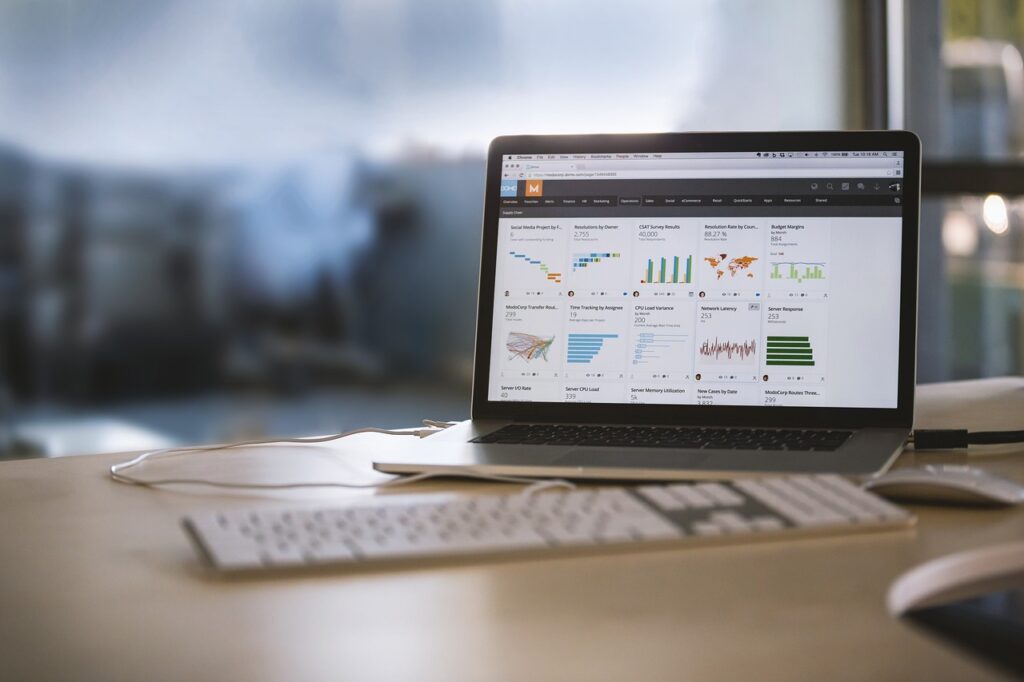In today’s fast-paced digital world, staying on top of your social media game is more important than ever. Whether you’re a small business owner, a budding influencer, or a marketing professional, the right social media management tool can make all the difference. Two names that often come up in the search for the perfect partner in this journey are Post Planner and MeetEdgar. Both have their strengths, designed to streamline your social media strategy, but choosing the one that fits your needs can be a game-changer. Let’s take a closer look at how these platforms stack up, starting with their approach to content scheduling.
| Post Planner | MeetEdgar |
|---|---|
 |  |
| G2 Score – 3.8 out of 5 stars | G2 Score – 4.2 out of 5 stars |
| TrustRadius Score – 7/10 | TrustRadius Score – 9.3/10 |
Content Scheduling
The Heart of Social Media Strategy
Efficient content scheduling is crucial for maintaining a consistent and engaging presence on social media. It’s not just about posting regularly but also about posting smartly. Here’s how Post Planner and MeetEdgar approach the art and science of content scheduling.
Post Planner: Simplified and Strategic
Post Planner focuses on simplifying the content scheduling process while ensuring that your posts have the maximum impact. Its intuitive interface allows users to discover high-engagement content, plan their posting calendar, and analyze the performance of their content—all from a single dashboard. Post Planner’s strength lies in its content discovery feature, which suggests content likely to perform well based on its engagement data. This makes it easier for users to find and schedule posts that resonate with their audience, without spending hours on research.
One of the standout features of Post Planner is its ability to rate content on a scale of 1-5 stars, predicting its potential engagement level. This system helps users prioritize which content to schedule, optimizing their social media strategy for better results. Additionally, Post Planner offers a ‘Recycle’ feature, allowing evergreen content to be automatically rescheduled, ensuring that your feed stays active even when you’re short on new content.
MeetEdgar: Automation Meets Personalization
MeetEdgar takes content scheduling a step further by introducing a higher level of automation combined with a personalized touch. The platform uses a unique auto-variations feature that can generate multiple versions of a post, making it easy to repurpose a single piece of content across different platforms and times. This not only saves time but also keeps your content fresh and engaging.
MeetEdgar’s library-based approach allows users to categorize their content into different themes, making it easy to maintain a balanced and varied content mix. The platform’s scheduling functionality then automatically fills your posting calendar from these categories, based on the rules and timings you set. This “set it and forget it” model is perfect for users looking for a hands-off approach to content scheduling, ensuring that your social media feeds are never empty.
Analytics and Reporting
Measuring Success
In the realm of social media, analytics and reporting are indispensable for gauging the effectiveness of your content strategy. Both Post Planner and MeetEdgar offer tools to help you understand your social media performance, but they do so in slightly different ways.
Post Planner: Focus on Engagement Metrics
Post Planner provides users with essential analytics that offer insights into how individual posts perform in terms of engagement, reach, and shares. This data is crucial for understanding what content resonates with your audience, allowing you to tailor your future posts to increase engagement. The platform’s analytics are designed to be straightforward, making it easy for users to interpret the data without being overwhelmed by too many metrics.
A significant advantage of Post Planner’s analytics is the direct feedback on the predicted engagement score of content before you even post it. This predictive analysis, combined with post-performance data, enables users to refine their content strategy continuously, focusing on what works best for their audience.
However, users looking for more in-depth analytics, such as follower growth over time, demographic information, or competitive analysis, may find Post Planner’s reporting features a bit limited. The platform excels in immediate, post-level performance metrics but offers less in terms of broader account analytics.
MeetEdgar: Comprehensive Insights for Strategic Growth
MeetEdgar takes a more comprehensive approach to analytics, offering detailed insights into your social media performance across various platforms. The tool provides an overview of engagement trends, audience growth, and the best times to post, among other metrics. This broader set of data is invaluable for users who are looking to not just understand post-level performance but also gain insights into overall account health and growth.
One of the standout features of MeetEdgar’s analytics is the ability to track the performance of content categories over time. This allows users to see which types of content (e.g., promotional, educational, inspirational) are performing best, enabling a more strategic approach to content planning. Additionally, MeetEdgar offers A/B testing capabilities for posts, giving users the ability to experiment with different messaging and formats to see what yields the best results.
Customer Support and Community Resources
Both Post Planner and MeetEdgar understand the importance of support and resources for their users. However, the way they approach this aspect differs, reflecting their unique philosophies and user base needs.
Post Planner: Prioritizing Efficient Self-Help and Support
Post Planner has developed a comprehensive knowledge base designed to help users quickly find answers to their questions and solutions to their issues. This resource is rich with tutorials, FAQs, and articles covering a wide range of topics from basic setup to advanced content strategy tips. The focus is on empowering users to help themselves, which aligns with the tool’s overall emphasis on efficiency and simplicity.
For direct support, Post Planner offers email-based assistance, ensuring users can reach out to a human for more complex queries or issues that can’t be resolved through the knowledge base. While this might not provide the immediacy of live chat or phone support, it reflects Post Planner’s commitment to detailed, thoughtful assistance tailored to each user’s specific needs.
MeetEdgar: Comprehensive Support with a Personal Touch
MeetEdgar takes a slightly different approach to customer support, offering a variety of channels through which users can seek help. This includes a detailed knowledge base, email support, and for certain plans, direct access to live chat support. The inclusion of live chat is particularly noteworthy, as it caters to users who prefer real-time assistance to troubleshoot issues or get answers to their questions.
In addition to these support channels, MeetEdgar also maintains a vibrant community of users. Through social media groups and forums, users can share tips, ask for advice, and exchange strategies with fellow marketers and social media managers. This community aspect not only enriches the user experience but also fosters a sense of belonging and mutual support among users.

Related: Check out our free SEO suite

Integration and Compatibility
In today’s digital marketing landscape, the ability of a social media management tool to seamlessly integrate with other platforms and services is crucial. These integrations can enhance functionality, streamline workflows, and provide a more comprehensive view of your digital marketing efforts. Let’s see how Post Planner and MeetEdgar address this important aspect.
Post Planner: Streamlined Focus for Core Platforms
Post Planner has carved out its niche by honing in on the essence of what many users seek from a social media management tool: simplicity and effectiveness in scheduling content across the most popular social networks. This focus is mirrored in its approach to integration and compatibility. By ensuring seamless connectivity with platforms like Facebook, Twitter, Instagram, and Pinterest, Post Planner covers a broad swath of the social media landscape where a significant portion of audience engagement takes place.
The platform’s streamlined integration approach means that while it may not boast an extensive list of third-party app integrations, it excels in providing a user-friendly experience for those who prioritize direct social media management. For users and businesses whose online marketing strategies are centered around these key platforms, Post Planner’s integration capabilities offer a straightforward and efficient solution, minimizing the need for navigating between multiple tools and services.
MeetEdgar: Broadening Horizons with Extensive Integrations
In contrast, MeetEdgar adopts a more expansive approach to integration, reflecting its commitment to serving users who seek not just to manage social media content but to embed their social media efforts within a larger digital marketing strategy. Through its integration with Zapier, MeetEdgar opens the door to a multitude of third-party apps and services, spanning from email marketing platforms and customer relationship management (CRM) systems to analytics tools and beyond. This extensive connectivity caters to a more holistic view of digital marketing, where social media is one of many interconnected components.
MeetEdgar’s broader integration philosophy is particularly appealing to users and businesses looking for a more comprehensive tool that can act as a central hub for their marketing efforts. By facilitating data flow and automation across a diverse array of tools, MeetEdgar enables more sophisticated, data-driven marketing strategies that leverage insights and actions across the entire digital ecosystem.
Automation and AI Capabilities
Automation in social media tools can range from simple scheduling features to more advanced AI-driven content optimization and audience engagement strategies. Let’s examine how Post Planner and MeetEdgar leverage these technologies to benefit their users.
Post Planner
Post Planner is designed to make the process of managing social media content as efficient and effective as possible. The platform’s automation capabilities are primarily focused on simplifying content discovery and scheduling. This is achieved through an intuitive system that allows users to queue up content based on various criteria, including engagement scores and thematic relevance. The essence of Post Planner’s automation lies in its ability to help users quickly identify content that is likely to perform well, reducing the time and effort typically required to maintain an active social media presence.
The platform’s predictive engagement score, which assigns a rating to potential posts, is a subtle nod towards leveraging data analytics to inform content choices. While not branded explicitly as an AI feature, this functionality employs a form of data-driven decision-making that is characteristic of AI applications. It allows users to make more informed choices about what to post, optimizing their content strategy based on historical engagement data. This approach to automation and AI is in keeping with Post Planner’s overarching goal of streamlining social media management without introducing unnecessary complexity into the user experience.
MeetEdgar
MeetEdgar approaches automation and AI from a slightly different angle, aiming to provide users with a more hands-off experience in managing their social media strategy. The platform’s advanced automation features include the automatic generation of content variations, which utilizes AI to repurpose a single piece of content into multiple unique posts. This not only increases the efficiency of content creation but also enhances the reach and engagement potential of each piece of content by tailoring it to different audience preferences and platforms.
Another significant AI-driven feature in MeetEdgar is the optimization of posting schedules based on audience engagement patterns. By analyzing user interaction data, MeetEdgar identifies the optimal times for posting content across different social media channels, ensuring that posts have the greatest possible impact. This level of automation goes beyond mere scheduling convenience, offering strategic insights that can make a tangible difference in a social media campaign’s success.
Pricing
| Post Planner | Starting at $3 per month (billed annually), designed for individuals, offering up to 3 social accounts and 30 posts per day. At $11 per month (billed annually), for up to 10 social accounts and 100 posts per day, including more advanced features. Starting at $24 per month (billed annually), targeting small businesses, with up to 25 social accounts and 500 posts per day. |
| MeetEdgar | Edgar Lite: Starting at $19 per month, for basic scheduling needs. Edgar: The price was around $49 per month, offering unlimited scheduled posts, more social accounts, and access to all features. |
Conclusion
Post Planner emerges as a highly efficient tool designed to simplify the content discovery and scheduling process, making it ideal for individuals and businesses looking to maintain a consistent and engaging presence on major social media platforms. Its focus on providing actionable insights through a straightforward analytics dashboard, combined with its efficient content rating and recycling capabilities, positions Post Planner as a user-friendly option for those prioritizing simplicity and effectiveness in their social media strategy.
MeetEdgar, on the other hand, offers a more robust set of features aimed at automating and optimizing the social media management process. With advanced AI-driven capabilities like content variation generation and optimal posting time analysis, MeetEdgar is well-suited for users seeking a comprehensive solution that not only automates content scheduling but also enhances content strategy through intelligent insights. Its broad integration options and strong community engagement tools further underscore its appeal to businesses and marketers looking for a holistic approach to social media management.
Read Next:
- Content Marketing for E-learning Platforms: Engaging Learners Effectively
- The Role of Analytics in Refining Your Content Strategy
- Content Marketing in Crisis Situations: Navigating Challenges with Sensitivity
- The Power of Testimonials and Reviews in Content Marketing
- 31+ Top Social Media Management tools Compared! (2023)






















Comments are closed.